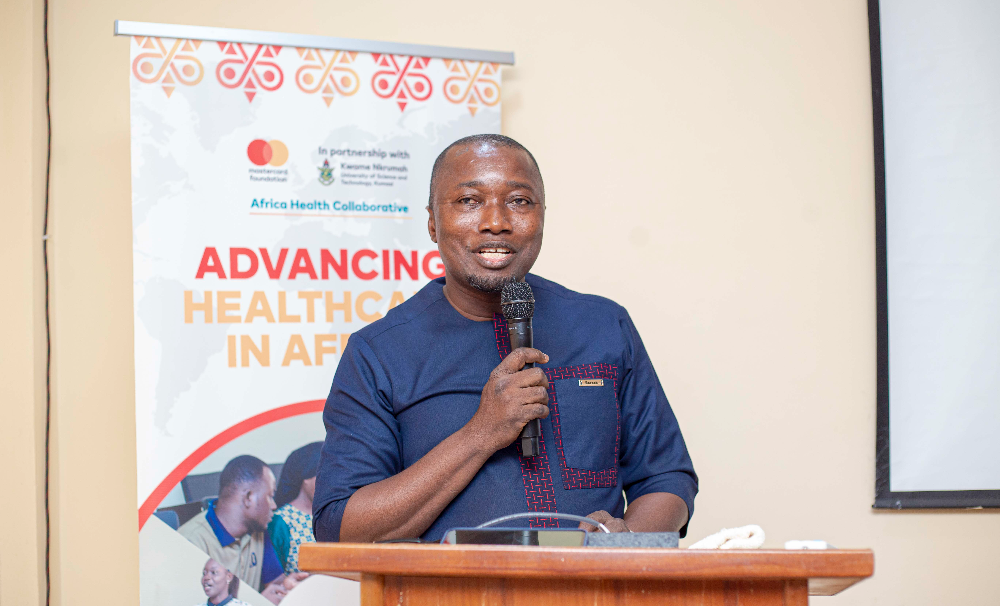Dr. Lawrence Ofori-Boadu, Director of the Institutional Care Division at the Ghana Health Service, says improving access to healthcare is not enough if the quality of care remains poor. According to him, Ghana must move beyond infrastructure and financial access to strengthen the capacity of health workers and ensure patient-centered care.
“Access alone is not enough,” Dr. Ofori-Boadu said this at the opening of Healthcare Quality Improvement short course cohort III, organized by the Africa Health Collaborative in partnership with the Mastercard Foundation.
“This is not quality of care for a facility to be without essential medicines. It cannot be quality of care if the facility has no trained nurses or when patients feel highly ignored.”
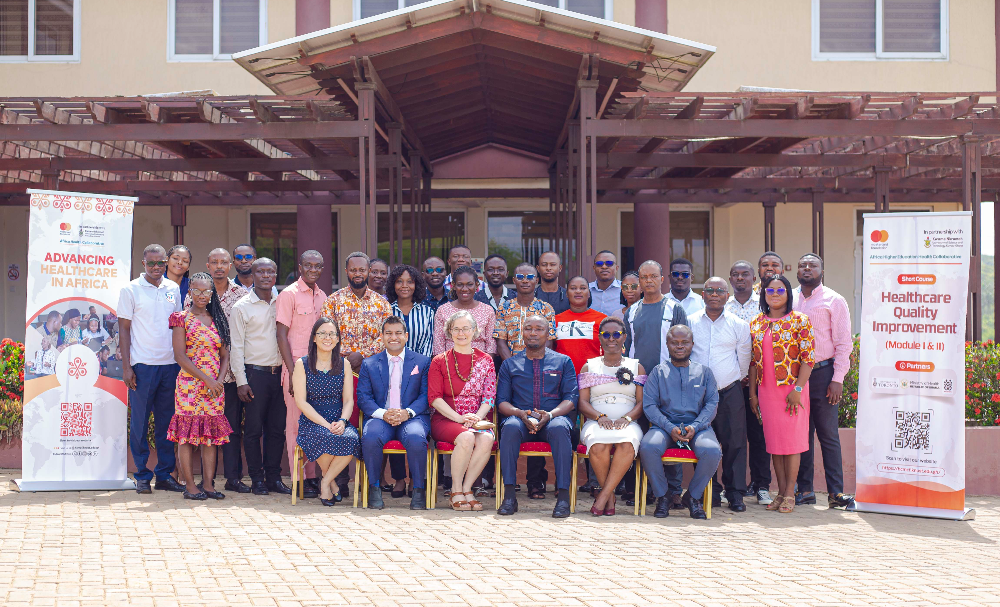
He noted that while the country has made strides in district healthcare, “improving healthcare is not a single act; it’s a continuous process.”
He called for continuous capacity building, support for frontline workers, the use of data to improve decision-making, and strong leadership at the district and sub-district levels.
“We must ensure that patients are heard and respected because it strengthens our community engagement. Healthcare is responsive, and everyone must be on board. Quality healthcare improvement starts with improving customer care and satisfaction,” he added.
The Healthcare Quality Improvement short course is being implemented in partnership with the Kwame Nkrumah University of Science and Technology (KNUST) and the University of Toronto. The course is designed to equip healthcare professionals with the knowledge and practical skills to improve primary healthcare delivery in their facilities.
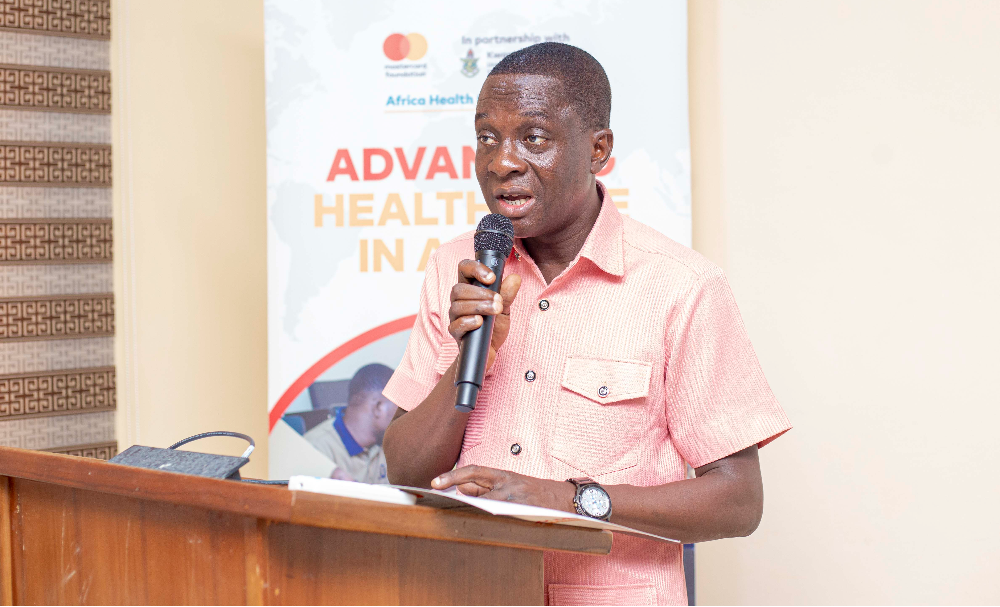
The course is spearheaded by the health employment pillar of the Collaborative, led by Dr. Kofi Akohene Mensah.
Dr. Kofi Akohene Mensah encouraged participants to take full advantage of the course.
“It’s all about experience sharing, so once you finish, you can gain the needed skills and knowledge to effectively drive meaningful change in your respective facilities,” he said.
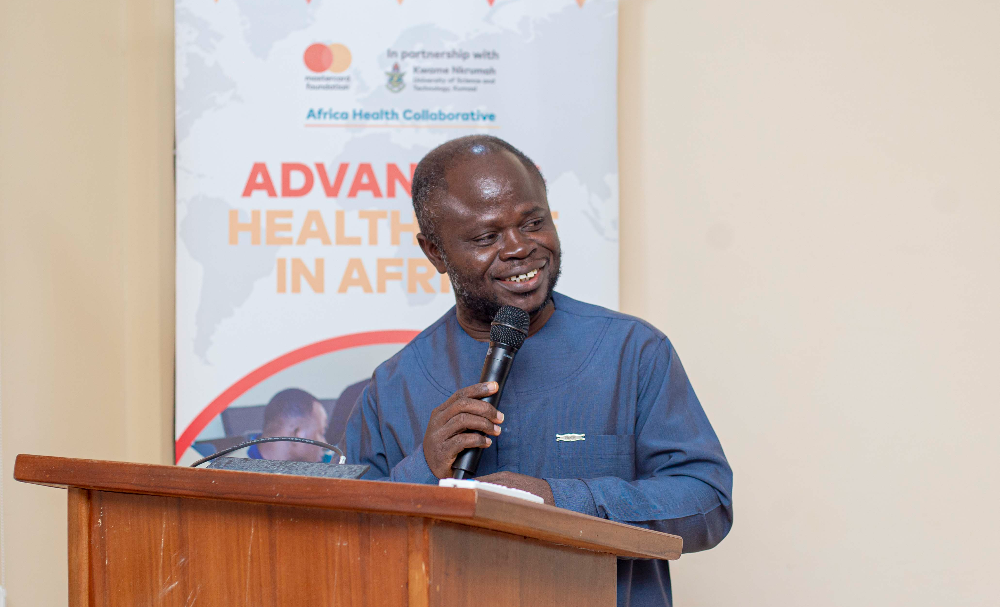
Dr. James Duah, Deputy Executive Director of the Christian Health Services Association of Ghana (CHAG), described the pursuit of quality healthcare as a long-term investment.
“This word we call quality, for which we are all gathered here, I see it as the biggest investment for our lives,” he said. “In 30 years’ time, the youngest one here will leave the stage of healthcare… and when we graduate or retire, we will need the health system. That is why we are here.”
He urged participants to be committed: “We are building for ourselves, our children, and the nation… while we are on the stage, let us build.”
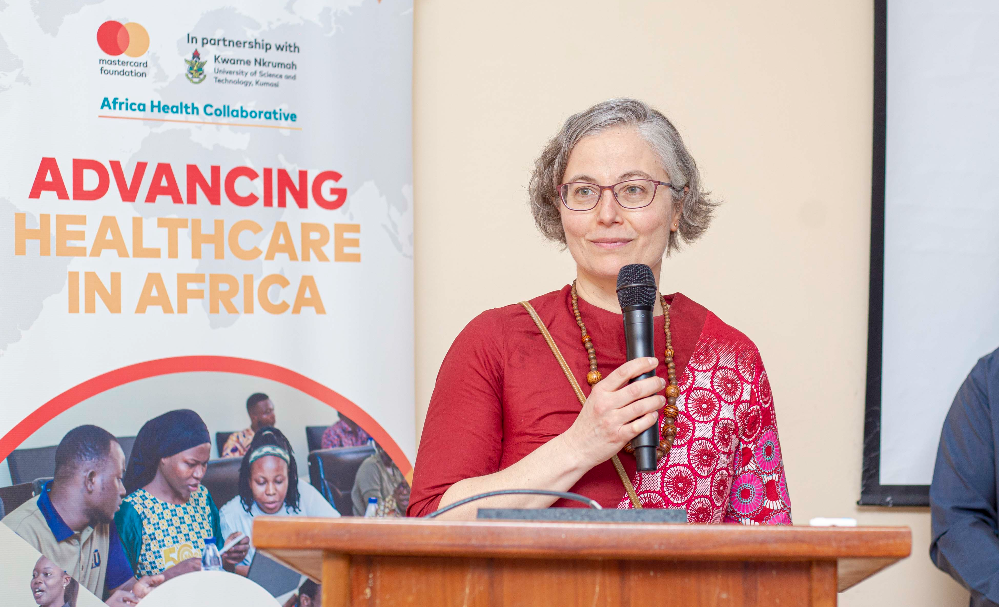
Dr. Margarita Kleopatra Lam Antoniades, who led a team from the University of Toronto, stressed that the course would be hands-on.
“It’s not a course where we will just be sitting and listening, but it’s a course where we will invite you to actively participate and to go home to your facilities and transform them.”
She added, “We believe every being on the planet deserves to have high-quality healthcare. Healthcare systems are complex, and achieving high-quality care is not something we can do as individuals. But when we work together, we can achieve more than we ever could alone.”








